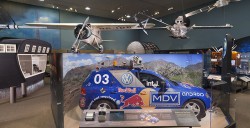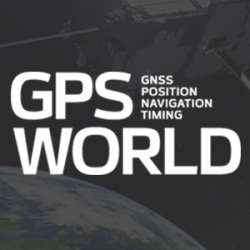
Smithsonian Time and Navigation Exhibit Opens Friday
April 10, 2013
A major exhibition opening April 12, “Time and Navigation: the untold story of getting from here to there,” […]
Read More

As part of the Stanford Engineering Hero Lecture Series, Brad Parkinson will present a talk on “GPS for Humanity” Monday, April 30, at 7 p.m. Pacific Time. The lecture will be broadcast online at no charge. If you would like to view the live broadcast, register at the Stanford University site.

Don Jewell (DJ), our Defense Editor, caught up with Colonel Bernard Gruber (BG), the newest director of the newly renamed Global Positioning Systems Directorate at SMC in Los Angeles, California. They discussed the current status of the GPS program and the way ahead. Don caught Colonel Gruber just before he departed for the East Coast for an Executive-Level Acquisition Course at the Defense Acquisition University at Fort Belvoir, Virginia.

Excerpt: “The articles in the May and June issues of GPS World on the origins of GPS by Drs. Bradford Parkinson and Stephen Powers presented a detailed view of the people involved in the development of the GPS Program. This view on the origin of GPS essentially begins with the so-called “Lonely Halls” meeting where Dr. Parkinson and a group of Air Force officers invented the GPS concept that was subsequently developed by the teams of people discussed in some detail.” PLUS: Brad Parkinson replies.

The first time I ever heard of the Magnavox Research Laboratory in Torrance, California, was in 1966, as a young engineer working at Hughes Aircraft. We were building large (46-foot diameter) ground stations for the Defense Satellite Communications System (DSCS). Magnavox was supplying the secret anti-jam modems used in the terminals.
Follow Us